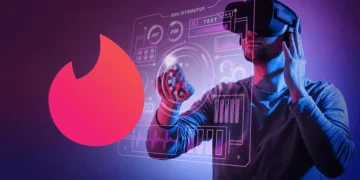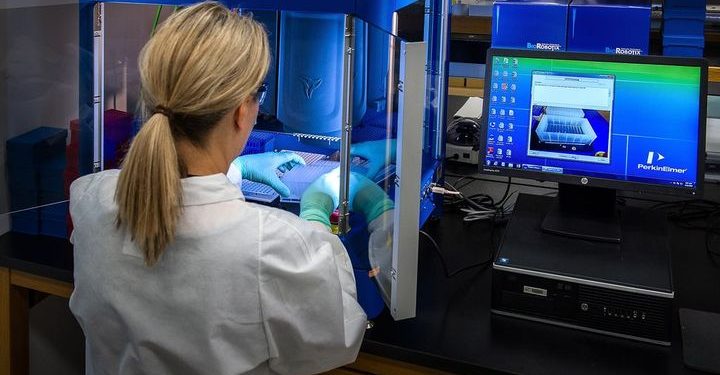Blockchain technology has gradually disrupted the business world over the past few years, bringing strong security to the data assets that businesses store on their infrastructure.
Exchange of the health industry information
Many healthcare sectors have today introduced the concept of Health Information Exchange (HIE) to enable patients, doctors, and other staff to securely access and share digital medical information with each other. This not only improves the speed, quality, and safety of patient treatment and care but also reduces costs.
While the complexities of security and privacy, as well as the inefficiencies, brought about by traditional healthcare infrastructure, often make the secure transfer of data difficult, the decentralized nature of blockchain prevents individuals from tampering with these data assets.
Jonas Lundqvist, CEO of private blockchain provider Heidrun, said:
Jonas Lundqvis
“Blockchain technology is essentially a digital ledger or database used to record information that is extremely difficult to alter, deceive or crack, and it is already changing Concepts of the digital world, such as ownership, privacy, trust, and collaboration.”
Although the mechanics of blockchain are extremely complex, the concept is very simple: store data decentralized so that it cannot be controlled or manipulated by a single participant. Records or transactions are verified using advanced consensus algorithms and then cryptographically sealed into data blocks to provide a time-stamped and immutable single version of the truth.
With some types of blockchain, patients can restrict data access, and they can then choose to share relevant portions of their personal information with providers. In this way, hackers cannot simply use a patient’s private key to gain access to extensive datasets. Instead, hackers need to steal the private keys of multiple users to gain access to a wealth of valuable information. And all users in a blockchain can keep their own copy of the ledger or database.
Use of multiple systems
Healthcare organizations are increasingly using a variety of systems to host patient data. While this can become unmanageable as the number of records grows, blockchain can secure the process of finding and using information.
Giang Tran, founder, and director of FPT software developer akaChain explained: “Patients’ medical records and other sensitive information can be stored on the blockchain, preventing any third party from tampering and misusing the data. However, due to the high cost of blockchain, so applying blockchain to healthcare organizations should choose the type of information stored on the blockchain.
Sharing medical records between different healthcare systems is becoming more and more popular in order to allow patients to receive better treatment. However, issues of transparency, privacy, and interoperability remain prominent.
The dominant blockchain protocol can help solve this problem. Through a concerted effort to establish industry standards, blockchain can help protect patient privacy and facilitate joint coordination among healthcare systems at an affordable cost to improve health outcomes.
The combination of Blockchain and IoT
The application of blockchain technology in the healthcare sector is also supported by the Internet of Medical Things (IoMT), a space that connects the vast array of devices used in the sector. This infrastructure, combined with blockchain, enables the collection of patient data at scale at a faster rate, enabling real-time management of this data.
Sudhir Pai, chief technology and innovation officer at Capgemini Financial Services, said:
As the Internet of Things in healthcare becomes more pervasive and telehealth becomes more pervasive, healthcare is transitioning to a continuum of care for all the right reasons.
Sudhir Pai
For example, a typical care management process requires more than 15 states or transitions, often involving not only caregivers but also community resources. A healthcare IoT-enabled blockchain could enable smart contracts between these stakeholders and potentially aid in remote real-time care.
Healthcare management has been using artificial intelligence to detect the next best action, but true care collaboration requires the support of technologies such as blockchain. The Metaverse will obviously be the next peak of this journey.
Obstacles to overcome
While there have been many developments using blockchain in the healthcare industry with successful results. But research shows that doctors and other workers still have hurdles to overcome before the technology’s full potential can be realized.
John Wise, the consultant to Pistoia Alliance, expands on the company’s recent findings from within the health care facility. He said, “Over the past five years, we have seen a growing awareness of the role of blockchain in healthcare. Our survey shows that the awareness of blockchain among professionals is increasing year by year.
However, there are still obstacles to the mass adoption of blockchain in healthcare. Nearly one-third (30%) of the pharma professionals we surveyed said lack of access to people with relevant skills was a major barrier; in addition, the lack of blockchain standards (19%) and Lack of interoperability (17%) these barriers.
The key to overcoming these barriers and driving adoption is collaboration. No matter how powerful blockchain becomes, the healthcare industry will face challenges until we improve the quality of information shared across organizations. Education is also critical, and in order to leverage healthcare technology, we must educate and train the next generation of blockchain experts.




























